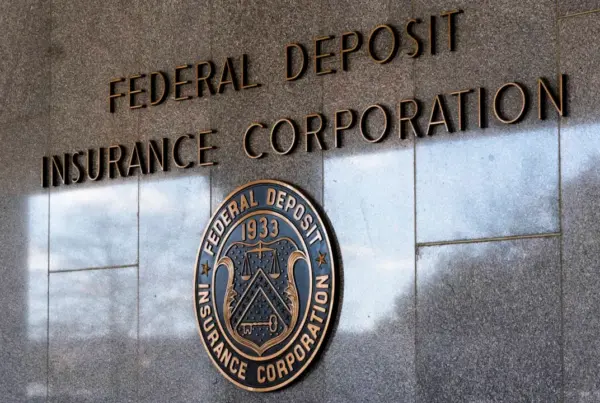FDIC’s Proposed Rule on Brokered Deposits: Key Insights for Financial Institutions
Introduction
On [insert date], the Federal Deposit Insurance Corporation (FDIC) introduced a proposed rule pertaining to brokered deposits, marking a crucial regulatory update in response to the changing dynamics of the financial services sector. This proposal addresses the increased complexity of deposit arrangements facilitated via fintech companies and intermediaries. Building upon Section 29 of the Federal Deposit Insurance Act, which traditionally governed brokered deposits, this initiative aims to mitigate the risks posed to insured depository institutions’ safety and soundness.
Key Regulatory Changes & Analysis
1. Expansion of the Definition of Deposit Broker
The proposal significantly expands the definition of a deposit broker.
- Previous Definition: Centered narrowly on entities soliciting deposits from the public for bank placement.
- New Definition: Encompasses a broader spectrum of entities, especially those employing digital platforms.
2. New Registration Requirements
The FDIC’s proposal mandates registration for entities classified as deposit brokers.
- Registration Process: Entities qualifying as deposit brokers must register with the FDIC for enhanced oversight.
- Compliance Timeline: Registration must be completed within [insert specific timeframe].
3. Enhanced Reporting Obligations
The rule introduces detailed reporting requirements for banks and deposit brokers, aimed at improving oversight.
- Data Submission: Institutions are required to submit comprehensive reports about brokered deposits.
- Reporting Frequency: The FDIC will define the reporting intervals—potentially increasing compliance costs.
4. Impact on Financial Institutions
These regulatory updates will have profound implications on banks, fintech entities, and other institutions handling deposits.
- Increased Compliance Burden: Institutions need to adjust operations and possibly seek legal guidance.
- Market Dynamics: Regulatory changes might redefine competition, especially for smaller banks reliant on brokered deposits.
Legal and Industry Implications
The proposed changes present numerous compliance challenges and legal risks for impacted businesses.
- Compliance Costs: Institutions might face heightened expenses for technology updates and staff training.
- Regulatory Risks: Non-compliance could lead to enforcement actions by the FDIC, including fines.
- Litigation Risks: The expansive definition might spur legal disputes over entity classifications under the new rule.
Recommended Actions & Compliance Strategies
Institutions should adopt proactive measures to adhere to the new regulations.
- Review and Update Contracts: Ensure agreements align with new definitions and requirements.
- Prepare for Registration: Qualifying entities should start the registration process to meet deadlines.
- Engage Legal Counsel: Legal experts on financial regulations can offer guidance through compliance complexities.
Public Comments: The FDIC invites public comments on the proposed rule until [insert deadline]. Stakeholders should participate to express their opinions on the changes.
Conclusion & Next Steps
The FDIC’s proposed rule on brokered deposits signifies a pivotal change in the regulatory environment for financial institutions. Key points include the broader definition of deposit brokers, mandatory registration, and enhanced reporting duties. The implementation schedule is anticipated to span over [insert timeframe], with potential legal challenges as stakeholders adapt. Vigilance and responsiveness are essential for financial institutions to mitigate risks and ensure compliance. With the evolving regulatory landscape, further updates from the FDIC may require continuous industry attention.


